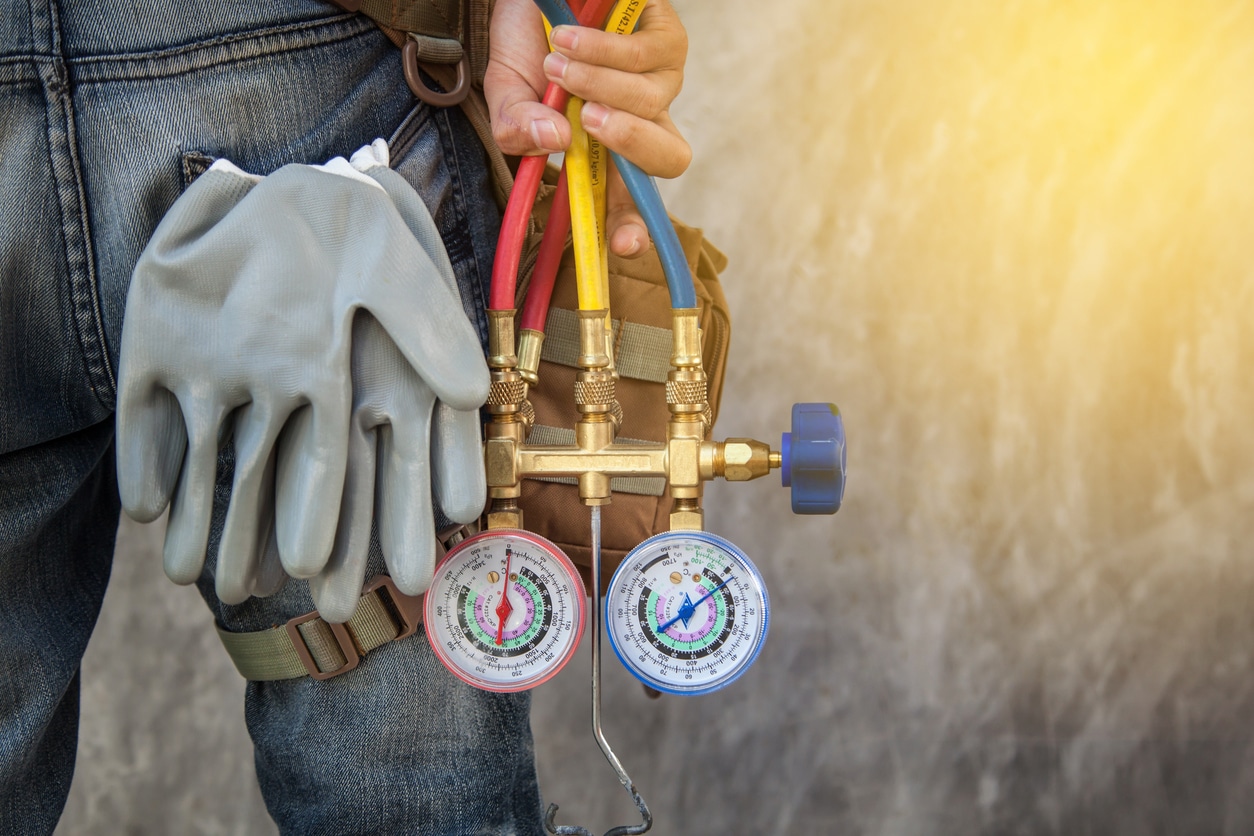
Did you know that your air conditioner not only cools your home, but also removes humidity so that your indoor air quality is more comfortable? That’s really important during our humid summers, when relative humidity climbs in our homes and makes us feel too warm. Humidity keeps moisture from evaporating on our skin so that we feel warmer than we should. When that happens, our instinct is to turn the thermostat down.
The Role of Your Condensate Drain Line
All that excess moisture is removed from the home by means of the condensate drain line. If it’s working as it should, the moisture just disappears down the drain and we never have to think about it. But every now and then, those drains will get clogged, or the pans will develop a leak. That not only prevents the moisture from being disposed of down the drain, but it can create excessively moist conditions, leading to mold and mildew. A clogged drain can also result in flooding — which can ruin floors, carpets and baseboards.
Preventing Clogged Drains
When you schedule your preventative maintenance tune up, it’s important that your HVAC tech checks your condensate drain. Over time, the drain can become clogged with sludge formed from dirt, dust and other substances that are moving from the condensation on your coils into your drain pan.
Your drain pan should also be checked for holes, which can allow water to leak into your home. The holes occur as a result of corrosion from the condensation.
A sign that you have a clogged drain could be a puddle of water on the floor near the air conditioner, or a dripping sound inside the unit.
To schedule your routine maintenance tune up, contact Jackson and Sons.
Jackson & Sons, Inc.
Our goal is to help educate our customers in Eastern North Carolina (including Wayne, Johnston, Greene, Lenoir, Pitt and Duplin Counties) about energy and home comfort issues (specific to HVAC systems).
Credit/Copyright Attribution: “iStock_nikom1234”